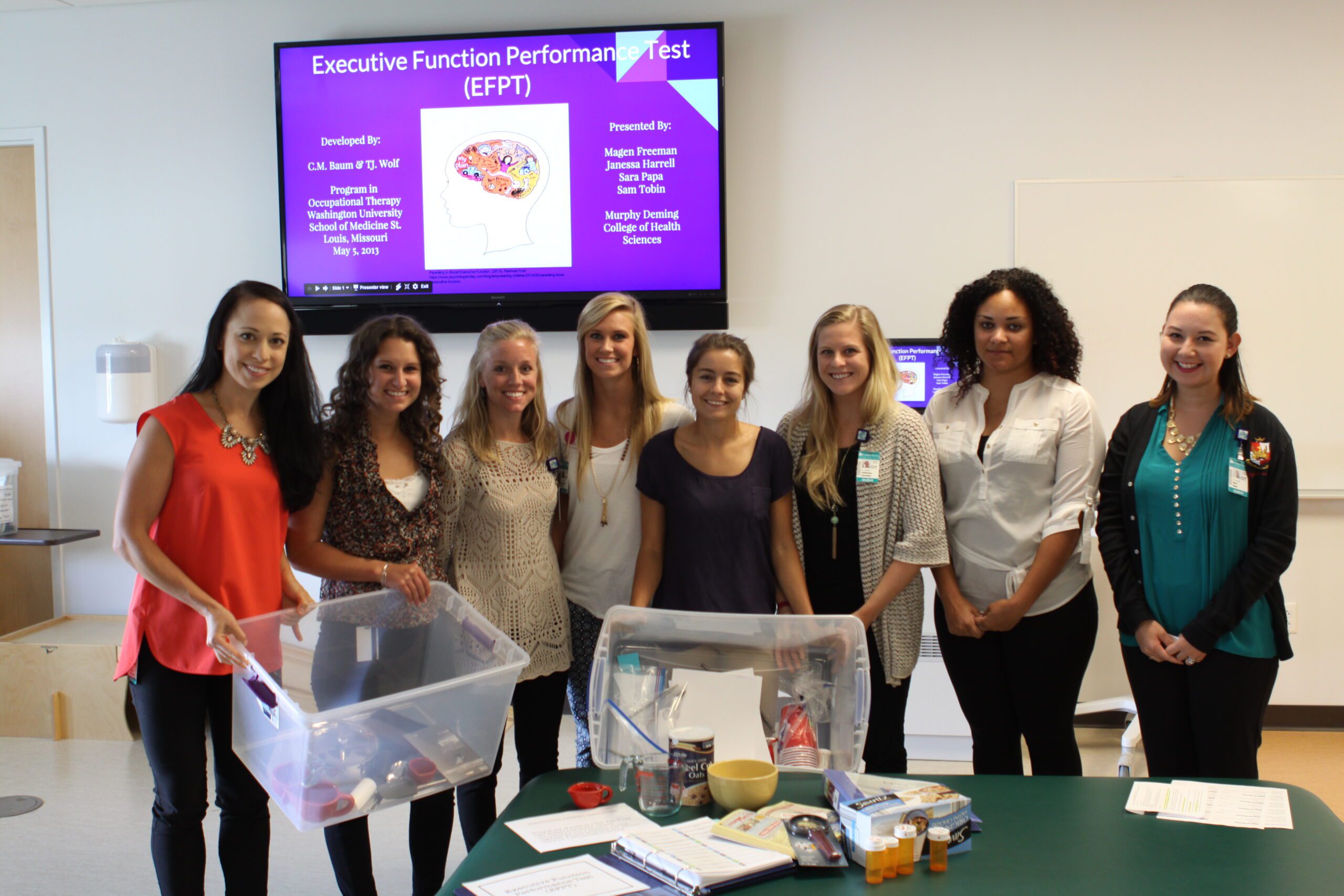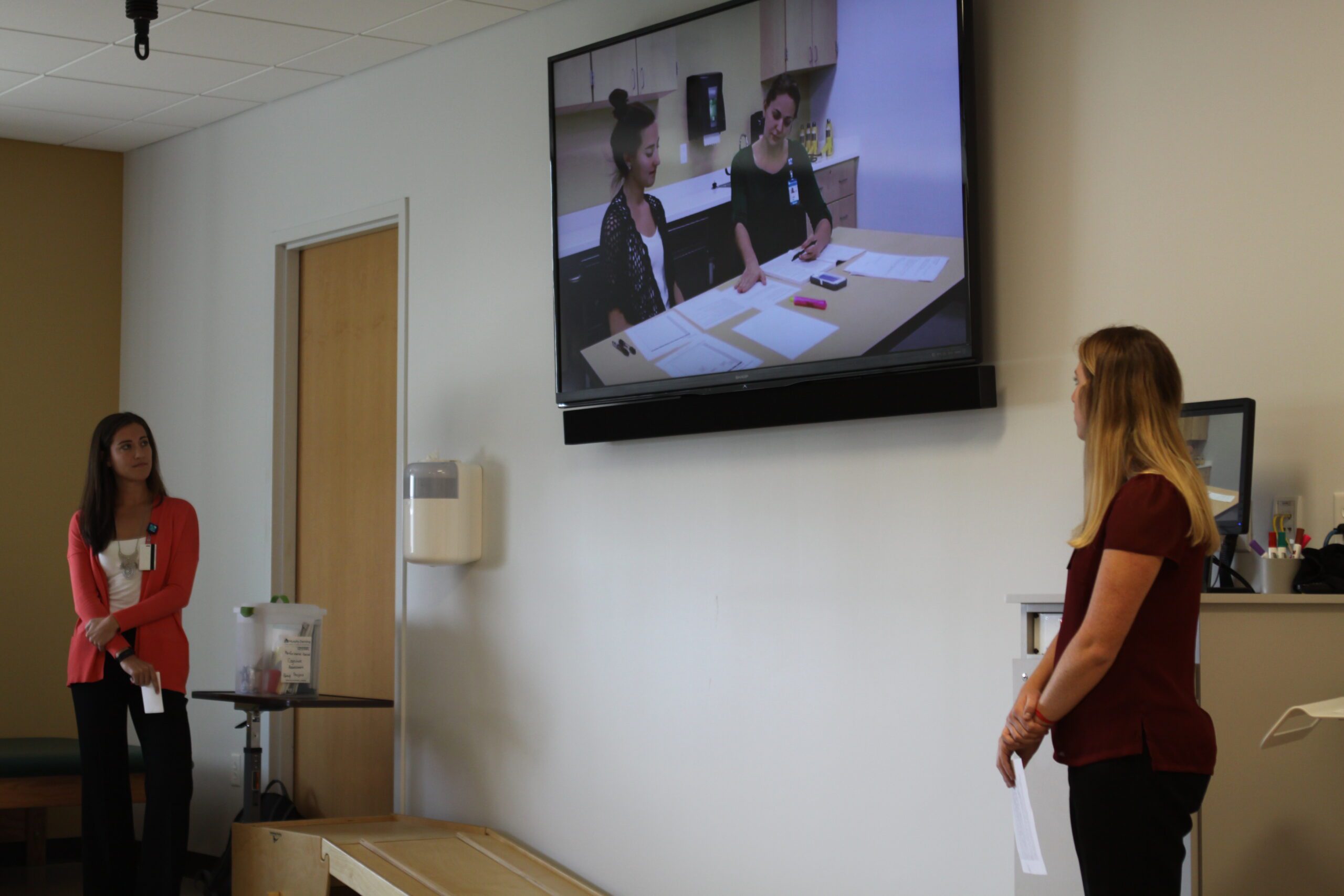Earlier in her career as an occupational therapist, Allison Ellington specialized in neurological rehabilitation and began learning about more functional ways of assessing clients’ cognition than she had learned in school. Now working as an assistant professor and director of clinical education at the OT program at Murphy Deming College of Health Sciences, Ellington has incorporated teaching these more functional cognitive assessments into the curriculum. For the past two years, she’s taken the idea one step further and tasked her students in the Adult Populations II course with creating and sharing these assessments with local clinics.

The goal? Expose second-year OT students to performance-based cognitive assessments that will allow clinicians to observe patients’ cognition through functional activities.
“As OTs, we care about what people can do in their real lives, but most cognitive assessments that were used up until a few years ago were rote tasks: Can you spell the word ‘world’ backwards? Start at 100 and count down by sevens. These are cognitive assessments but don’t tell us how people actually function,” says Ellington.
One challenge is that these assessments cannot simply be purchased: clinicians need to read about the tests in journals or online manuals and then create their own assessment kit, which has proven to be a barrier in busy, real-life practice. By teaching better assessment techniques in the classroom, students are prepared to be stronger clinicians. By partnering with local clinics, the students are able to make an impact on the profession right now. Students develop and prepare the kits, go to visit the clinic and train the staff on how to administer and score the assessment, and leave behind all the necessary supplies.
Examples of the performance-based assessments include: the Multiple Errands Test, in which students created activity lists, customized to each clinic, in which clients need to complete six tasks and gather four pieces of information in 20 minutes; or the Complex Task Performance Test, which is a work-simulation challenging clients with multi-tasking, information organization, and filtering out distractions.

Incorporating such a practical assignment into the class provides motivation to the students because their work must be good enough to give therapists. The assignment also builds student confidence that they can apply these same skills during their third-year fieldwork or at their first job.
OT student Cortney Halsey, now in her final year at MDCHS, took Ellington’s class as a second year student. “My OT classmates and I partnered with Bridgewater Retirement Community to provide a facility kit and in-service presentation on the Weekly Calendar Planning Activity,” Halsey says. “This standardized assessment requires clients to organized, plan, and record appointments on a weekly calendar and provides data to the OT about higher-level cognitive processing.”
The project, Halsey says, among numerous diverse and meaningful learning opportunities at MDCHS, has set the standard of providing occupation-based and sustainable resources for her third-year fieldwork placements. This preparation gave Halsey the skills to create kits and training for the Rehabilitation Hospital of Southwest Virginia, where she completed fieldwork earlier this year.
The student interaction with outside clinicians is also good for Mary Baldwin University and the growing reputation of Murphy Deming College of Health Sciences. “This is one of those nice ‘give backs’ to our local partners,” Ellington says. “We’re providing them with exposure to a new tool and all the necessary supplies to actually use it — reducing the existing time barrier. Additionally, our students produce high-quality work and it demonstrates the strong and practical education we’re providing at Murphy Deming.”